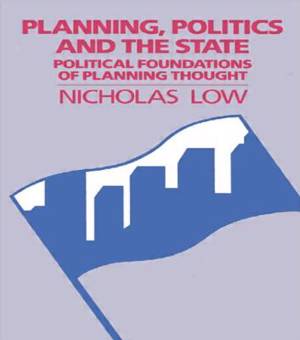
- Retrait gratuit dans votre magasin Club
- 7.000.000 titres dans notre catalogue
- Payer en toute sécurité
- Toujours un magasin près de chez vous
- Retrait gratuit dans votre magasin Club
- 7.000.0000 titres dans notre catalogue
- Payer en toute sécurité
- Toujours un magasin près de chez vous
Planning, Politics and the State
Political Foundations of Planning Thought
Nicholas Low
Livre broché | Anglais
45,95 €
+ 91 points
Description
First Published in 1990. John Maynard Keynes once made the bold prediction that the three- hour work day would prevail for his grandchildren's generation. Seventy years later, the question of working time is as pertinent as it was at the inception of the 40-hour week. Not until now, however, has there been a global comparative analysis of working time laws, policies and actual working hours. Despite a century-long optimism about reduced working hours and some progress in legal measures limiting working hours, this book demonstrates that differences in actual working hours between industrialized and developing countries remain considerable - without any clear sign of hours being reduced. This study aims to offer some suggestions about how this gap can begin to be closed. most basic questions facing planning theory and practice today. The author argues that it is not plans that determine the shape of cities, but political processes. In the 1980s state planning came under siege; planners had to justify their existence to politicians, the business world and the public. Though planning must still be accountable, neither the complete domination of the market nor traditional post-war planning ideologies are wholly acceptable in the 1990s. A new agenda and a major rethinking of planning from first principles is required - but what form should this take? Showing that political theory provides the proper foundation for understanding planning practice, the book explores in turn assenting and dissenting planning paradigms. Exploration of the former begins with Weber and moves through pluralism, corporatism and neo-liberalism. Dissenting theory is organized around the work of Marx: orthodox neo-Marxism, Gramsci's 'philosophy of praxis', the critical theory of the Frankfurt School, and the work of Habermas. The author concludes with a presentation of an integrated political perspective upon planning and the state.
Spécifications
Parties prenantes
- Auteur(s) :
- Editeur:
Contenu
- Nombre de pages :
- 328
- Langue:
- Anglais
Caractéristiques
- EAN:
- 9780044458975
- Date de parution :
- 01-11-90
- Format:
- Livre broché
- Format numérique:
- Trade paperback (VS)
- Dimensions :
- 140 mm x 216 mm
- Poids :
- 421 g

Les avis
Nous publions uniquement les avis qui respectent les conditions requises. Consultez nos conditions pour les avis.






